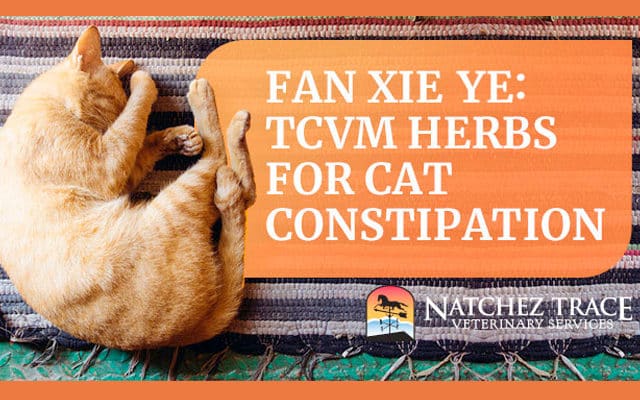Life is miserable for everyone when there’s a constipated kitty in the home!
The most common signs of cat constipation include:
- Straining in the litterbox
- Crying
- Little accidents around the house.
Painful for kitty, and troubling for you.
When cats have trouble defecating, it’s called constipation.
If left treated, constipation may progress to megacolon.
In megacolon, prolonged feces retention stretches and damages the colon muscles.
Fecal matter can no longer move through properly.
Causes of Cat Constipation
Constipation is a clinical sign.
In other words, it may or may not have a disease cause.
Usually, though, dehydration is the most common cause of cat constipation.
Common causes of cat constipation include:
- Arthritis
- Certain drugs
- Dehydration
- Lack of exercise
- Metabolic disease
- Nerve damage
- Obstruction
- Painful defecation
- Stress
- Trauma
- Tumors
Symptoms of Cat Constipation
Your cat might be constipated without you being aware of the situation.
Consequently, we recommend keeping an eye out for the symptoms.
Symptoms include:
- Defecating outside the litterbox
- Depression
- Infrequent or no defecation
- Hard, dry feces
- Loss of appetite
- Small quantities of feces
- Straining to defecate
- Vomiting
Western Diagnosis and Treatment of Cat Constipation
If your cat suffers from constipation, you should see your vet.
Your vet might be able to diagnose constipation by feeling your cat’s abdomen.
If your cat is overweight, your vet might need to do x-rays to see what’s going on.
Some cats need an endoscopy to check for tumors or structural abnormalities.
In addition, vets often recommend bloodwork. Bloodwork helps your vet check for diseases.
Sometimes, certain diseases cause dehydration which leads to constipation.
For example, cats with kidney disease often become constipated.
With mild constipation, most vets recommend adding fiber to the diet.
For cats with an underlying disease cause, subcutaneous fluids usually help.
How Fan Xie Ye Eases Cat Constipation
Luckily, Traditional Chinese Veterinary Medicine (TCVM) offers a convenient solution.
Just add Fan Xie Ye to your cat’s food!
Fan Xie Ye: Western Philosophy
Fan Xie Ye helps cats suffering from:
- Abdominal pain
- Constipation
- Impaction
Fan Xie Ye: Eastern Philosophy
Eastern medicine treats a disease’s root cause(s) rather than alleviating symptoms.
Accordingly, TCVM veterinarians evaluate feline constipation a little differently.
TCVM vets look for signs of imbalance.
Fan Xie Ye helps cats with the following TCVM signs:
- Abdominal fullness
- A red or pale tongue
- Excessively strong or weak pulse
- Lower abdominal distension
- Lower intestinal stagnation
- Small, hard stools
How Fan Xie Ye Works
Fan Xie Ye is a single-herb TCVM formula to help cats suffering from constipation.
The underlying cause of any disease is always an imbalance somewhere in the body.
Fan Xie Ye alleviates your cat’s imbalances while treating the symptom of constipation.
According to Traditional Chinese Medicine, Fan Xie Ye works by:
- Purging the large intestine
- Resolving food stasis
- Clearing heat
However, Fan Xie Ye works even better when combined with plenty of water, Eastern Food Therapy, and moderate exercise.







